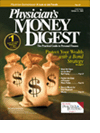Health Care Cost Controls—for All
The media spotlight has beenfocused recently on the cost of prescriptiondrugs. But a recent pollshows that many Americans think thatphysicians' bills and hospital charges arealso too high and should come under afederal price control system.
Public Concern
A September 2004 poll of 1012Americans conducted by Harris Interactiveshows that 55% of those questionedthink that doctors' fees are"unreasonably high," up from 43% lastyear and the highest level ever seen bythe pollsters. In comparison, 66% thinkthe cost of prescription drugs is unreasonablyhigh and 64% say the sameabout hospital charges. Americans weremuch less unhappy with the cost ofother items—only 33% think that thesticker price on a car is unreasonablyhigh and just 11% think that clothingcosts far too much.
When asked whether price controlsshould be imposed on various goods andservices, about half say the governmentshould control the cost of doctors' services,comparedwith 60% who would like tosee a cap on the cost of prescription drugsand 55% who think the governmentshould step in to limit hospital charges.
The poll results show that Americansmay have a bias toward price controls.Although only 12% think that the cost ofpackaged goods is too high, 26% of thosepolled say they would support a federalgovernment move to control prices onsuch items. And even though the percentagewho think doctors' fees are unreasonablyhigh has ranged between 38% and55% since 2001, the number who wantprice controls on doctors' charges hasremained fairly steady over that period atabout half. According to the US Bureau ofLabor Statistics, the average physicianearned about $162,000 in 2003.
Placing Blame
The pharmaceutical industry garneredthe most negative sentiments. In additionto the large majority who think the cost ofprescription drugs is too high and shouldbe subject to government price controls,more than half think that drugs cost a lotmore here than in Canada and WesternEurope. One third say that marketing andadvertising are the biggest factors in higherdrug costs, while 41% think the industry'sprofit margins are to blame.
The public does seem to see the importanceof spending on research and developmentof new drugs, however. Whenasked if they would still support price controlson prescription drugs if it meant thatdrug companies would spend less onresearch, more than half say they wouldoppose controls. One third also say thatprice controls would affect the number ofnew drugs developed, while half say thatthe number of new drugs brought to marketwould stay about the same.
